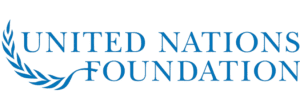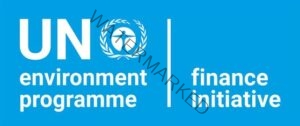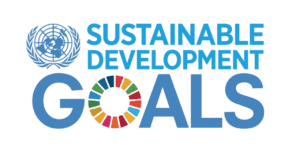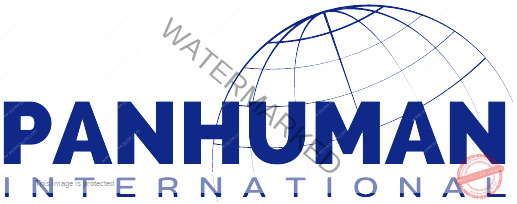Quality Education for All
Quality Education for All: A Focus on SDG 4
- Home
- Human Rights
- Quality Education for All: A Focus on SDG 4
United Nations' Sustainable Development Goals (SDGs)
Quality Education for All: A Focus on SDG 4
 Quality education for all is crucial because education is not a luxury but a fundamental right that empowers individuals to shape their future. It opens doors to equal opportunities, enabling people from all backgrounds to pursue their dreams, contribute to society, and break the cycle of poverty. When education is accessible and free, it promotes fairness, boosts economic growth, and helps create a more just and inclusive world. Putting a price tag on education limits these opportunities, reinforcing inequality and leaving many behind. Therefore, quality education must be accessible to all, ensuring that no one is denied the chance to succeed.
Quality education for all is crucial because education is not a luxury but a fundamental right that empowers individuals to shape their future. It opens doors to equal opportunities, enabling people from all backgrounds to pursue their dreams, contribute to society, and break the cycle of poverty. When education is accessible and free, it promotes fairness, boosts economic growth, and helps create a more just and inclusive world. Putting a price tag on education limits these opportunities, reinforcing inequality and leaving many behind. Therefore, quality education must be accessible to all, ensuring that no one is denied the chance to succeed.
Quality education is a cornerstone of sustainable development, and the United Nations Sustainable Development Goal 4 (SDG 4) emphasizes the need to “ensure inclusive and equitable quality education and promote lifelong learning opportunities for all.” Education plays a critical role in empowering individuals, fostering economic growth, and promoting social cohesion; ultimately resulting in equal opportunities for all. SDG 4 aligns with the broader goals of the UN 2030 Agenda by addressing the systemic barriers that prevent equal access to education worldwide.
What is SDG 4?
SDG 4, one of the 17 United Nations Sustainable Development Goals (SDGs), is dedicated to ensuring that every person, regardless of gender, socio-economic background, or location, has access to quality education. The goal is to provide equitable, inclusive, and lifelong learning opportunities. This broad focus includes early childhood education, K-12 education, higher education, and Career and Technical Education (CTE) pathways.
The specific targets of SDG 4 include:
- Ensuring free, equitable, and quality primary and secondary education for all.
- Increasing access to affordable and quality early childhood education programs, such as preschools and play schools.
- Expanding access to affordable vocational and technical training, especially through trade schools, community colleges, and polytechnic institutions.
- Increasing the supply of qualified teachers through teacher training programs.
The Role of Education in Sustainable Development
Education is fundamental to achieving all other SDGs. It equips individuals with the knowledge, skills, and values to tackle complex global challenges, such as climate change, poverty, and inequality. Quality education is also essential for fostering innovation and building the foundation for sustainable industries.
The importance of education in sustainable development is evident in the efforts to integrate sustainability into curricula at all levels, from preschool to higher education. Many K-12 schools, private schools, charter schools, and Montessori schools now emphasize not just academic achievement but also environmental responsibility and social awareness.
Early Childhood and K-12 Education
A key target of SDG 4 is improving access to early childhood education, particularly in preschools and play schools. Early childhood is a critical period for cognitive and social development. Therefore, ensuring access to high-quality early learning programs is essential for laying the foundation for future success.
At the K-12 level, it’s essential to create an inclusive and supportive learning environment that prepares students for further education or entry into the workforce. Public and private schools, as well as specialized institutions like Montessori schools and charter schools, are increasingly tailoring their curriculum to meet diverse learner needs. This includes incorporating digital tools, experiential learning, and global citizenship into their education models.
Higher Education and Vocational Training
Access to higher education and vocational training is essential for sustainable development. Many countries are making strides to increase enrollment in community colleges, public and private universities, and polytechnic institutions, as they offer crucial pathways to developing a skilled workforce. These institutions provide not only traditional academic courses but also vital Career and Technical Education (CTE) programs that align with industry needs.
Nursing schools, technical schools, and trade schools are particularly important for training the workforce in high-demand areas like healthcare and technology. Nursing programs, for example, address the critical global shortage of healthcare professionals, while CTE programs in technical fields ensure that individuals are prepared for the rapidly evolving job market.
Online schools and online colleges are also revolutionizing access to education by offering flexible and affordable learning options. These institutions, often accredited through a country’s Department of Education, make it easier for non-traditional learners, such as working adults and students in remote locations, to pursue education.
Adult Education and Lifelong Learning
Achieving SDG 4 also requires promoting lifelong learning opportunities. This includes access to General Educational Development (GED) programs, which provide a second chance for individuals who did not complete high school. Similarly, expanding access to adult education programs and continuing education is critical for ensuring that people can upskill and reskill in response to changing economic demands.
Challenges in Achieving SDG 4
While there is global recognition of the importance of quality education for all, significant challenges remain in achieving SDG 4. These include:
Inequality in Access: Socio-economic disparities, gender inequality, and geographic isolation are some of the main barriers to accessing quality education. In many countries, rural and marginalized communities are disproportionately excluded from formal education systems.
Inadequate Infrastructure: In many parts of the world, schools lack basic facilities such as electricity, safe drinking water, and sanitation, which undermines the quality of education.
Teacher Shortages: Many countries face a shortage of well-trained, qualified teachers. Expanding teacher training programs is critical to addressing this gap and ensuring that students receive a quality education.
Curriculum Relevance: There is a growing need to adapt curricula to meet the demands of the 21st-century economy. This includes integrating digital skills, environmental education, and technical and vocational training into the curriculum.
The Role of Policy and Global Cooperation
Achieving SDG 4 will require strong national policies and international cooperation. Governments, educators, and policymakers must work together to:
- Ensure adequate funding for education at all levels, from preschool to higher education.
- Promote gender equality and inclusiveness in education.
- Support innovation in education, including the use of technology to expand access to learning.
- Strengthen partnerships with the private sector and civil society to enhance educational opportunities.
The Department of Education and Global Commitment
National Departments of Education play a critical role in implementing educational policies aligned with SDG 4. These agencies are responsible for overseeing curriculum development, teacher training, and the expansion of both public and private schools.
Moreover, global partnerships and initiatives, such as those promoted by UNESCO and the World Bank, are instrumental in driving progress toward achieving SDG 4. Through multilateral efforts, countries can share best practices, mobilize resources, and ensure that no child is left behind.
Ensuring quality education for all is essential for building a sustainable and equitable future. By prioritizing education at all levels—from early childhood education to higher education—and expanding access to technical schools, nursing programs, and online education, we can work towards achieving SDG 4 by 2030. The path to achieving this goal is not without challenges, but with global cooperation, strong policies, and innovative solutions, sustainable development is within reach.
Education empowers individuals, fosters economic growth, and promotes peace and stability—laying the foundation for a brighter, more sustainable future for all.

- Palestine Israel Conflict: A Historical Background Since 19th Century
- Global Conflict Escalation & Potential for a 3rd World War
- Social Justice: Envisioning a Futuristic Egalitarian Society
- Freedom and Democracy: Pillars of a Thriving Society
- Global Poverty Eradication Challenge & Way Forward
- Global Peace & Disarmament Challenge in the 21st Century
- Climate & Environment: Our Collective Responsibility
- Gender Equality Challenge (SDG 5)
- Quality Education for All: A Focus on SDG 4
- Future of Affordable and Clean Energy (SDG 7)
- India’s Democracy at a Crossroads: Crisis or Evolution?
17 Development Goals 17 Sustainable Development 17 Sustainable Development Goals 17 Sustainable Development Goals SDG 17 Sustainable Goals 2030 Agenda Commission On Sustainable Development Development And Sustainable Development Development Sustainable Development Durable Development MDG Millennium Development Goals MDGS Goals Millennium Development Goals SDG Development SDG Goals SDG Of UN SDGs Sustainable Development Goals SDG Sustainability SDG Sustainable SDG Sustainable Development Goals SDG Un SDG United Nation Strategic Development Goals Substantial Development Sustainability And Development Sustainability And Sustainable Development Sustainability SDG Sustainable Development Sustainable Development Goals Sustainable Development Goal SDGs Sustainable Development Project UN 2030 Agenda UNDP SDG UNDP SDGs UNDP Sustainable Development Goals United Nation SDG United Nations Organization Sustainable Development Goals United Nations SDG United Nations Sustainable Development Goals United Nations Sustainable Development Goals (SDGs) United Nation Sustainable Development Goals UN SDG UN SDGs UN Sustainable Development Goals Un Sustainable Development Goal SDG
- Home
- Act of Kindness Video Contest 2025
- Become A Volunteer
- Contact Us
- Donate Now to Support Our Cause
- Fundraising & Digital Marketing Support for Nonprofit Organizations in 2025
- Global Youth Ambassadors' Summit 2025
- News & Reports
- Our Causes
- Drinking Water for Humans & Animals of Drought-Stricken Thar Desert
- Educate a Girl in Pakistan & Give Her a Future
- Help a Family Caught in a War-Zone
- Help Protect a Child Caught in a War-Zone
- Help us Give the Gift of Sight to a Million Poor Blind Children in Pakistan
- Plant a Commemorative Tree to Help us Fight the Climate Change
- Our Mission
- Global Peace and Disarmament Challenge in the 21st Century
- Global Peace and Disarmament: Building a Safer, Inclusive, and Sustainable World in the 21st Century
- Redefining Terrorism for Lasting Global Peace
- Reforming the United Nations for Lasting Global Peace
- The Escalating Global Conflicts and the Looming Threat of a 3rd World War
- Our Vision
- World Peace Ambassadors' Summit 2025
INTERNATIONAL PARTNERS






